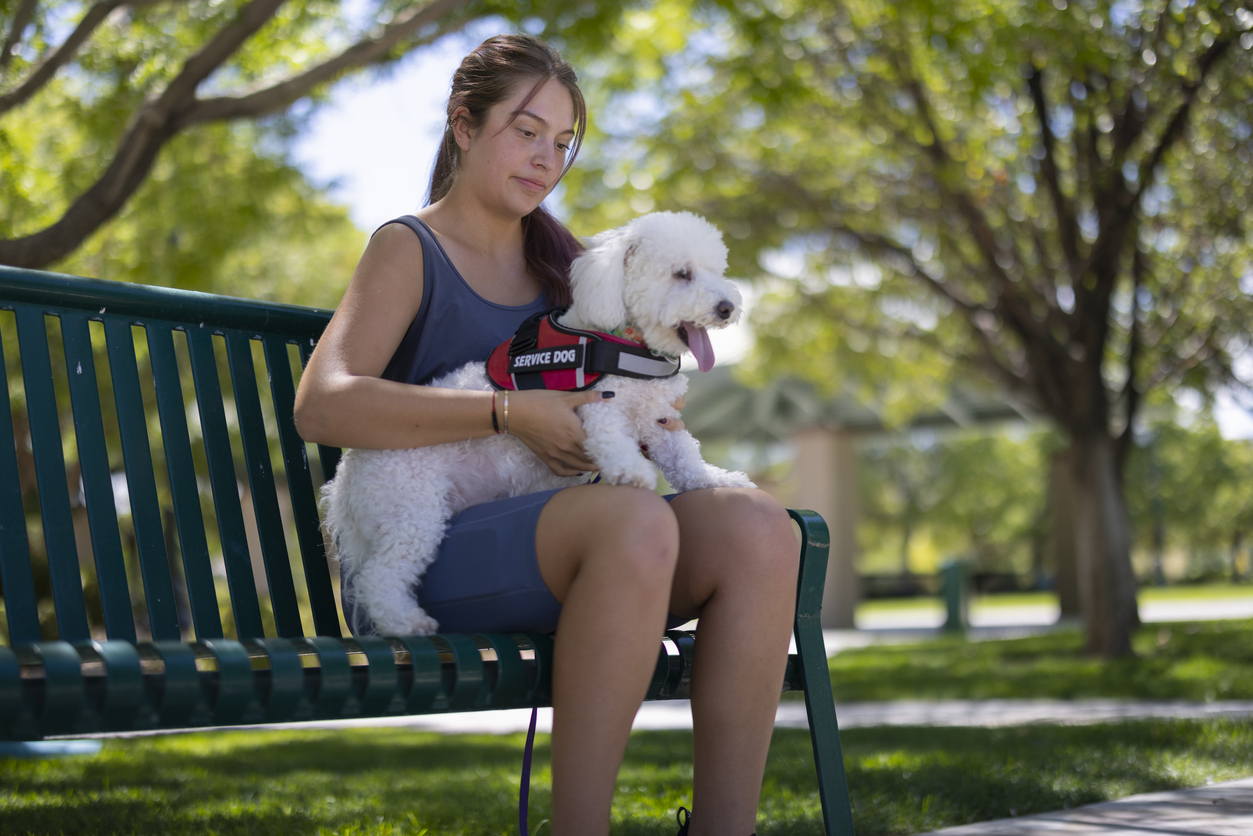Living with Chronic Pain
Service Dogs and the General Public

Service dogs are trained to perform at least one task that helps to mitigate the disability of their handler. They may be beneficial for improving functionality for individuals who struggle with chronic pain. Emotional support is not considered a task under the Americans with Disabilities Act (ADA); however, a psychiatric service dog can help with various psychiatric conditions.
Service dogs can help individuals with various conditions, including physical limitations, psychiatric issues, and cognitive difficulties. There are numerous tasks that a service dog might perform to help with activities that are diminished due to chronic pain. Service dogs have public access rights; therefore, they must have impeccable manners. A service dog will have contact with the general public as it is trained and accompanies the owner.
Several people will want to pet the service dog
A service dog’s vest that says “do not pet” does not deter everyone. Furthermore, some individuals may not ask before petting the dog. This could be an honest mistake or purposeful ignorance. It can be beneficial to practice saying “no” ahead of time. Training the dog to look at the handler on cue can be helpful in these situations. Telling the service dog to “leave it alone” or “no petting right now” is a less direct, but clear, message.
Assumptions may be made
People may assume that a service dog must be for a blind individual, a veteran, or someone with a physical disability. Certain comments, such as “you look like you can see just fine” or “I didn’t know you served,” are not uncommon. The handler does not owe an explanation of their medical history. Sharing the reason for a service dog is strictly the handler’s decision. Sometimes, it is easier to just let people assume.
Most people have an opinion
Many people will have opinions on what a handler is doing right or wrong with their service dog. Unsolicited advice on food, training methods, tools, gear, etc., is often given. However, unless harm is coming to the person or animal or a law is being broken, it is up to the handler to determine what is best for their service dog.
The law is not always known
It is uncommon for individuals to know the laws pertaining to service dogs. Additionally, most people do not know the differences between a service dog, emotional support dog, and therapy dog. Many misconceptions exist concerning which breeds can or cannot be a service dog. The most common breeds for service dogs are often referred to as the “golden four.” They include Labradors, golden retrievers, standard poodles, and German shepherds. However, any breed of dog with the right temperament and ability to perform the necessary tasks can be a service dog.
Various businesses and services in the United States, including some hospitals, are not up-to-date on the ADA laws regarding service dogs. Business cards with basic information and the number to the ADA hotline can be purchased to give out if needed. It may also be useful to have a copy of specific laws, or a link or QR code, available that redirects to the ADA website. Similarly, individuals in Canada may not know whether a license or certification is required, as this can vary per area. It is helpful to know what is required in each area, including required documents or identification.
Individuals can impact a service dog’s behavior
A service dog’s behavior may or may not change if it interacts with the public regularly. While some people like to command the dog in their native language, others opt to train their dog in languages that are different. How a handler responds to the public interacting with their service dog can impact a dog’s behavior. Ultimately, it is the handler’s decision whether they allow their service dog to be petted; however, doing so without exercising care and consistency about a “release” cue can result in a bad situation. This is especially true with an overly-friendly service dog that seeks attention.
Additional sources: ADA.gov, ADA National Network, Psychiatric Service Dog Partners, Anything Pawsable, Assistance Dogs International, New Life K9s, and Psychology Today


















